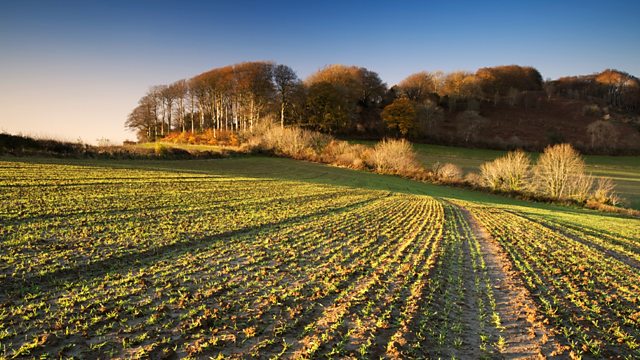
Fox-hunting regulation, Forestry, Wheat stem rust
Farming Today looks at the state of the UK's woodlands - and hears about concerns over how fox-hunting laws are being enforced.
The issue of how fox-hunting is policed is under scrutiny, amid concerns about the number of foxes being killed illegally.
Since 2005, fox-hunting with a pack of hounds has been banned in England and Wales - instead, one way packs of dogs can still be used is by following a specially laid scent trail. But it's controversial - because even when hounds follow a set trail, the pack can potentially be distracted by the scent of a real fox. Opponents claim this is a loophole in the law that allows fox-hunting to continue.
Last week, Lincolnshire Police were called to investigate an incident where a fox was killed by a pack of hounds - while Cheshire MPs say reports of foxes being killed illegally have increased this year; they're launching a review of how the county's hunts are policed. 大象传媒 Cheshire's Political Reporter Phil McCann has more on the story.
Today, around 13% of the UK is covered with trees - but that figure is set to get a boost with various new planting projects, including the 'Northern Forest' of 50 million trees between Liverpool and Hull, and promises in the government's recent 25-Year Environment Plan to support the creation of large woodlands. This week, Farming Today is focusing on all things forestry, from on-farm planting to the timber sector. Sybil Ruscoe chats to Richard Greenhouse from the Forestry Commission about the state of our woodlands today.
Wheat stem rust was pretty much wiped out in the UK 60 years ago. There was an isolated case in 2013, but none since then. However, cases have been reported more recently in Germany and Sicily.
It's usually transmitted via windborne spores - but now it's been found reproducing on wild barberry plants in Sweden; and they are often planted by conservation groups in the UK to encourage the rare Barberry Carpet Moth.
Scientists at the John Innes Centre in Norwich are now working to ensure that efforts to save the moth don't also endanger wheat fields. Anna Hill visited the Centre's glasshouses with Dr Diane Saunders.
Presented by Sybil Ruscoe; produced by Lucy Taylor.
Last on
Broadcast
- Mon 12 Feb 2018 05:45大象传媒 Radio 4
Podcast
-
![]()
Farming Today
The latest news about food, farming and the countryside

